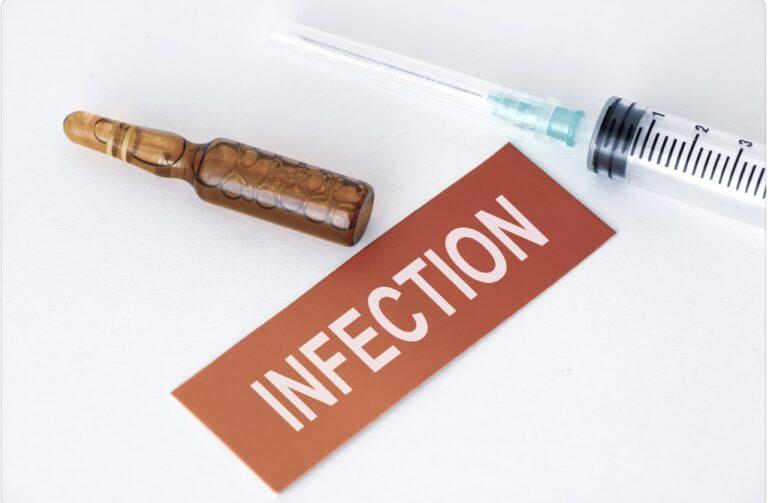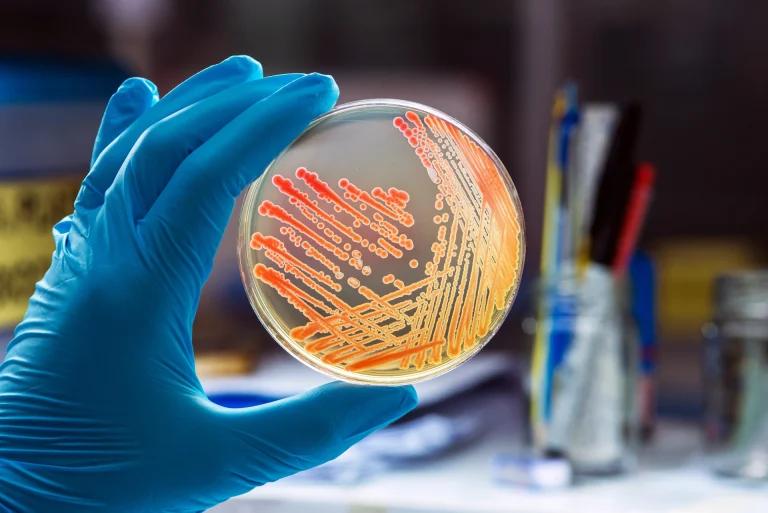Escherichia coli, or E. coli as it is more commonly known, is a bacterium that has long captured the attention of the scientific community and the general public alike. This versatile microorganism, found ubiquitously in the gastrointestinal tracts of humans and animals. While the majority of E. coli strains are harmless, even beneficial, to their human and animal counterparts, a small number of these bacteria can pose a significant threat, causing a range of serious illnesses.
In this blog, we will look into E. coli, exploring its diverse characteristics, the various strains that can lead to disease, the mechanisms by which they cause infection, and the important steps that can be taken to prevent and manage these potentially life-threatening infections.
Understanding E. coli bacteria
E. coli is a Gram-negative, rod-shaped bacterium that is commonly found in the lower intestine of warm-blooded organisms, including humans. As a member of the Enterobacteriaceae family, E. coli is known for its versatility and adaptability, thriving in a wide range of environmental conditions. While the majority of E. coli strains are harmless, even playing a beneficial role in the human digestive system, a select few types of E.coli can pose a significant threat to human health.
The diversity of E. coli strains
E. coli is a highly diverse species, with numerous strains that can be distinguished by their unique biochemical and genetic characteristics. While most E. coli strains are harmless, a select few have the potential to cause serious illnesses, including severe gastroenteritis, urinary tract infections, and even life-threatening conditions like hemolytic uremic syndrome (HUS).
The E. coli strains that cause diarrhea
Six primary groups have been identified as the main E. coli strains causing diarrheal illnesses. These diarrheagenic E. coli strains can be distinguished by how they work and the specific symptoms they bring out in infected individuals.
Shiga Toxin-Producing E. coli (STEC)
The Shiga toxin-producing escherichia coli (STEC) strain, also known as enterohemorrhagic E. coli (EHEC), is considered the most significant and potentially life-threatening of the diarrhea causing E. coli strains. E. coli O157:H7 is the subtype that produces a potent Shiga-like toxin that can cause severe gastrointestinal symptoms, including bloody diarrhea, and in some cases, the development of hemolytic uremic syndrome (HUS), a condition characterized by acute kidney failure, anemia, and low platelet count.
Enterotoxigenic E. coli (ETEC)
Enterotoxigenic E. coli (ETEC) is a common cause of traveler’s diarrhea a condition that affects individuals visiting developing regions with poor sanitation and hygiene practices. ETEC strains produce heat-stable toxins, which stimulate the secretion of fluid and electrolytes in the small intestine, leading to watery diarrhea and abdominal cramps.
Enteropathogenic E. coli (EPEC)
Enteropathogenic E. coli (EPEC) is a significant cause of diarrhea in infants and young children, particularly in developing countries. EPEC strains adhere to the intestinal epithelial cells, disrupting their normal function and leading to the characteristic symptoms of watery diarrhea, vomiting, and fever.
Enteroinvasive E. coli (EIEC)
Enteroinvasive E. coli (EIEC) is a rare but potentially severe strain that can cause bloody diarrhea, abdominal cramps, and fever. EIEC strains are capable of invading and replicating within the epithelial cells of the intestine, leading to the destruction of the mucosal lining and the release of blood and mucus in the stool.
Enteroaggregative E. coli (EAEC)
Enteroaggregative E. coli (EAEC) is a strain that has been associated with persistent diarrhea, particularly in children and immunocompromised individuals. EAEC strains adhere to the intestinal epithelium in a characteristic “stacked-brick” pattern, leading to the production of toxins and the stimulation of an inflammatory response, which can result in watery, mucus diarrhea.
Diffusely Adherent E. coli (DAEC)
Diffusely Adherent E. coli (DAEC) is a less well-understood strain that has been linked to diarrheal illness, particularly in young children. DAEC strains adhere to the intestinal epithelial cells in a diffuse pattern, though the exact mechanisms by which they cause disease are still being investigated.
Modes of transmission and risk factors
E. coli infections can be contracted through a variety of routes, with food poisoning and contaminated water being the most common sources of outbreaks of E.Coli. Understanding the different modes of transmission and the risk factors associated with E. coli infections is important for prevention.
Foodborne transmission
Contaminated food, particularly undercooked ground beef, raw milk (unpasteurized milk), dairy products and fresh produce (raw fruits ans raw vegetables), is the most common source of E. coli infections. The presence of E. coli, especially STEC strains, in these food items can be due to various factors, including poor slaughtering and processing practices, as well as the contamination of agricultural fields by animal waste or contaminated irrigation water.
Waterborne transmission
E. coli can also be transmitted through the consumption of contaminated water, such as untreated or improperly disinfected drinking water, as well as through recreational activities in polluted water bodies like lakes, rivers, and swimming pools.
Person-to-Person transmission
E. coli can be transmitted directly from person to person, particularly through the oral-fecal route. This mode of transmission is especially prevalent in settings where hygiene practices are poor, such as childcare facilities, nursing homes, and areas with poor sanitation.
Animal contact
Exposure to farm animals, petting zoos, and other settings where animals are present can also lead to E. coli infections, as the bacteria can be present in the animals’ feces and environments.
Risk factors
Certain groups are more susceptible to E. coli infections and their associated complications. These include young children, the elderly, individuals with weakened immune systems (e.g., those with HIV/AIDS, cancer, or organ transplants), and those taking medications that can reduce stomach acid levels (e.g., proton pump inhibitors).
Symptoms
Symptoms of E. coli infections can vary widely, depending on the specific strain and the individual’s immune response. While some infections may result in mild, self-limiting symptoms, others can lead to severe and potentially life-threatening complications.
Gastrointestinal symptoms
The most common manifestation of E. coli infections is gastrointestinal illness, which can range from mild watery diarrhea to severe, bloody diarrhea (dysentery). Accompanying symptoms may include abdominal cramps, nausea, vomiting, and low-grade fever.
Urinary Tract Infections (UTIs)
E. coli is also a leading cause of urinary tract infections (UTIs), which can result in symptoms such as a burning sensation during urination, frequent urination, and lower abdominal discomfort.
Complications
In some cases, E. coli infections can lead to more severe, systemic complications, such as hemolytic uremic syndrome (HUS), a life-threatening condition characterized by acute kidney failure, anemia, and low platelet count. HUS is most commonly associated with STEC infections, particularly the E. coli O157:H7 strain.
Rare but serious complications of E. coli infections include bloodstream infections (sepsis), meningitis, and pneumonia, which can occur in immunocompromised individuals or as a result of the spread of the infection beyond the gastrointestinal tract.
Diagnostic approaches
Accurate and timely diagnosis of E. coli infections is crucial to start appropriate treatment and the prevention of further spread. Healthcare providers use a range of diagnostic tools to identify the specific strain of E. coli such as:
- Stool culture which involves the collection and laboratory analysis of a patient’s stool sample
- Serological tests to detect the presence of E. coli-specific antibodies in the patient’s blood
- Polymerase chain reaction (PCR) assays, which can rapidly detect the presence of E. coli-specific genetic markers in clinical samples
- Blood cultures, urinalysis, and imaging studies (e.g., abdominal ultrasound or CT scan), to assess the extent of the infection and any associated organ damage
Treatment
The management of E. coli infections is largely dependent on the specific strain involved and the severity of the patient’s symptoms.
Supportive care
For mild E. coli infections, such as uncomplicated gastroenteritis, the main treatment approach is supportive care, which includes maintaining hydration, managing symptoms, and monitoring the patient’s condition. This may involve the administration of oral rehydration solutions or anti-nausea or anti-diarrheal medications, if appropriate.
Antibiotic therapy
In cases of more severe E. coli infections, such as those caused by STEC strains, the use of antibiotics is generally not recommended, as they may increase the risk of complications, such as the development of hemolytic uremic syndrome (HUS). Instead, healthcare providers focus on supportive care and the management of any associated complications.
Management of complications
For patients who develop severe complications, such as HUS, the treatment approach may involve more intensive interventions, including dialysis, blood transfusions, and, in some cases, hospitalization in an intensive care unit. The management of these complications often requires a multidisciplinary approach, involving nephrologists, hematologists, and other specialized healthcare providers.
Prevention and control measures
Given the potentially serious consequences of E. coli infections, a strong emphasis is placed on prevention and control measures these include:
- Proper food handling and preparation such as use different surfaces for prepping different types of food. Surfaces like cutting boards can spread bacteria. Use different cutting boards for your food. Keep one for raw meat and another for raw fruits and veggies
- Maintenance of good personal hygiene and regular handwashing
Practicing good hygiene and following food safety guidelines can go a long way toward decreasing your risk of E. coli infection.
Sources
- E. coli – Symptoms and causes – Mayo Clinic
- E. coli: Infection, Causes, Symptoms & Treatment
- E. coli – WHO
- Kinds of E. coli – E. coli infection – CDC
Medical Disclaimer
NowPatient has taken all reasonable steps to ensure that all material is factually accurate, complete, and current. However, the knowledge and experience of a qualified healthcare professional should always be sought after instead of using the information on this page. Before taking any drug, you should always speak to your doctor or another qualified healthcare provider.
The information provided here about medications is subject to change and is not meant to include all uses, precautions, warnings, directions, drug interactions, allergic reactions, or negative effects. The absence of warnings or other information for a particular medication does not imply that the medication or medication combination is appropriate for all patients or for all possible purposes.








